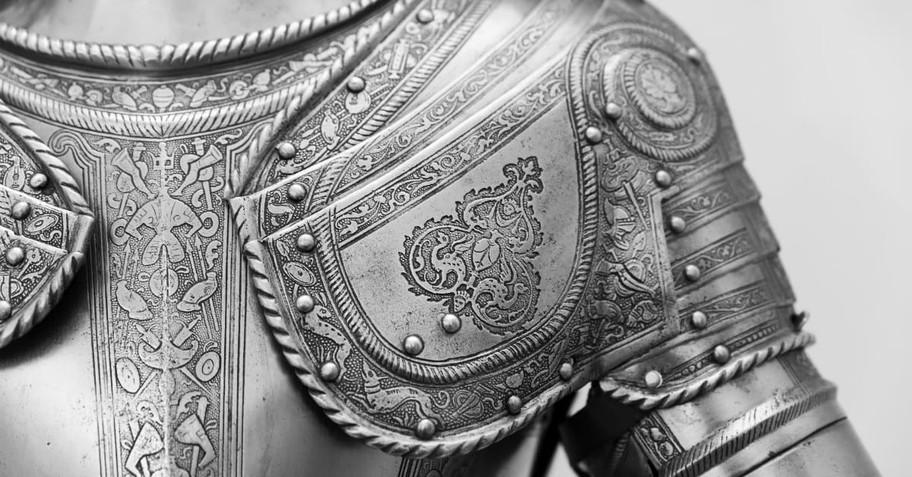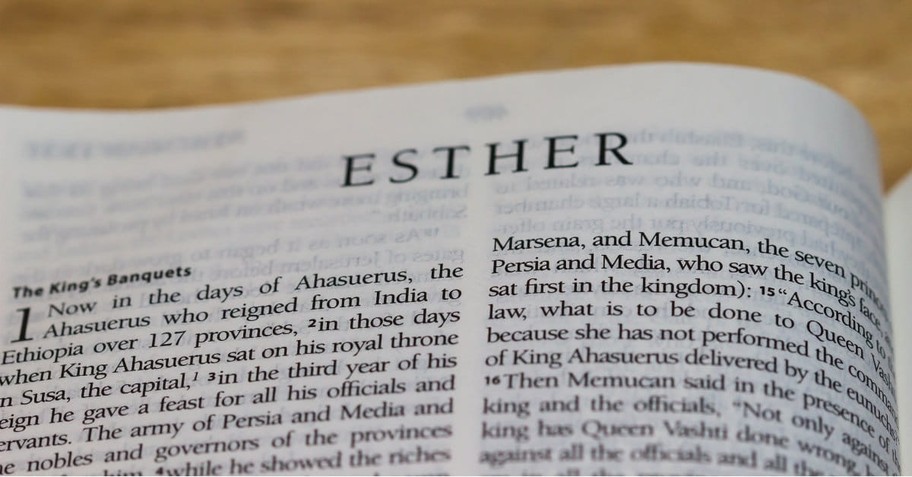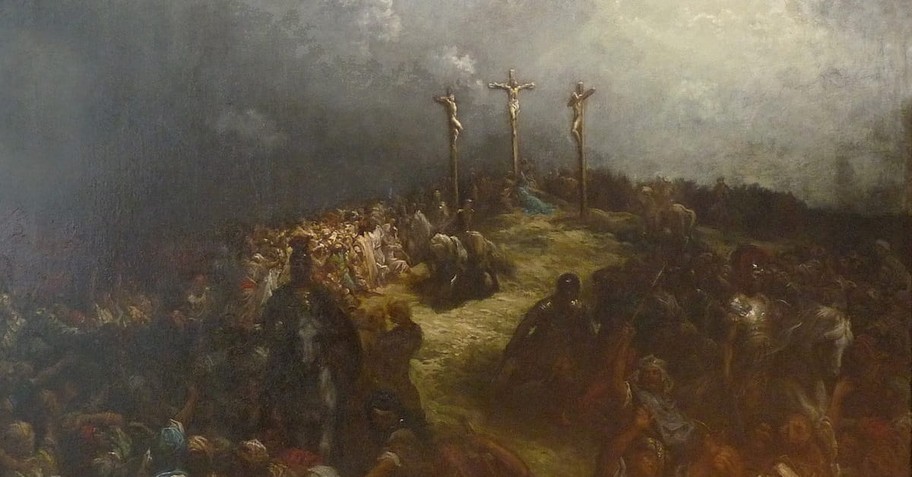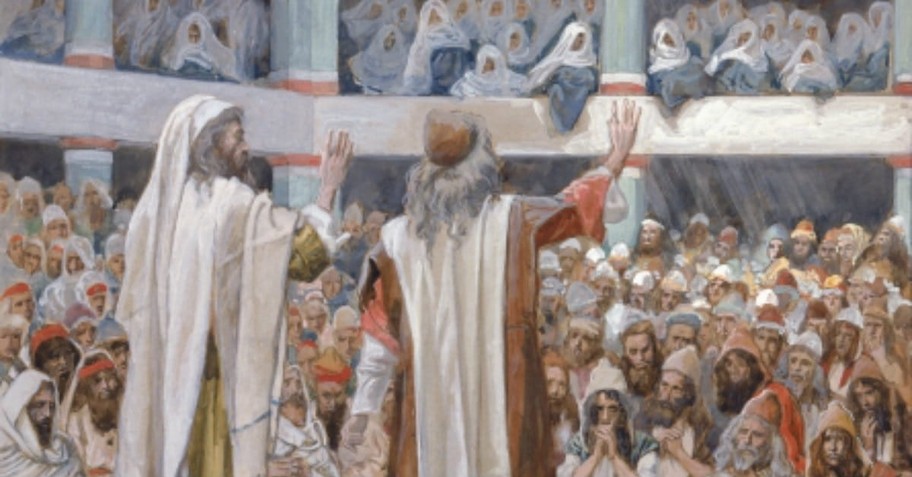10 Obscure (Yet Interesting!) Bible Characters and Their Stories

With over 66 books of Scripture covering thousands of years of history, the Bible makes mention of hundreds of people either in great detail (biblical heroes Abraham, David, Paul, Jesus) and gives others just a passing mention.
We encourage you to read the associated passages in the Bible to dig deeper into the lives and situations of these lesser known Bible characters because we can’t cover all that God wants us to learn about their stories though a simple blog post!
Here is a list of 10 obscure biblical characters that are easy to miss:
Photo Courtesy: Thinkstock

1. Naaman
2 Kings 5 tells the story of a successful Syrian commander who had the disease of leprosy. The story goes that on the suggestion of the servant girl of Naaman’s wife Naaman went to see the prophet Elisha to be cured of his leprosy. It is an amazing story of healing and turning to the Lord — and also has some twists and ironies at the end!
"Now Naaman was commander of the army of the king of Aram. He was a great man in the sight of his master and highly regarded, because through him the LORD had given victory to Aram. He was a valiant soldier, but he had leprosy." (2 Kings 5:1) Click here to read more!
Photo Courtesy: Thinkstock

2. Jabez
Jabez is only mentioned in a few verses of scripture and is known for his famous “Prayer of Jabez” mentioned in 1 Chronicles 4:10:
Jabez called upon the God of Israel, saying, ‘Oh that you would bless me and enlarge my border, and that your hand might be with me, and that you would keep me from harm so that it might not bring me pain!’ And God granted what he asked.
It is a simple prayer prayed in faith and serves as a powerful example of answered prayer and receiving blessing from the Lord.
Photo Courtesy: Thinkstock
.1200w.tn.jpg)
3. Josiah
Josiah, one of the greatest kings to ever rule Israel, started his reign when he was only eight years old. 2 Kings 22:2 says “he did what was right in the eyes of the Lord.”
Later on in 2 Kings 22, the story is told of the high priest finding the Book of the Law which had been neglected and hidden for years. This caused Josiah to tear his clothes and plead with the Lord to not punish Israel for their disobedience to God’s Word. Josiah read the Book of the Law publicly and made a covenant with the Lord along with his people (2 Kings 23:3) to obey the Lord with all of his heart and soul.
This is truly a marvelous story of repentance, spiritual leadership, and the mercy of God!
Photo Courtesy: Thinkstock

4. Mordecai
The story of Mordecai takes place throughout the book of Esther. Mordecai is the cousin and guardian for Esther, a foreigner who becomes queen of Persia. Mordecai uses his position in the king’s court to stand up for the oppressed people of God and foil a plot to assassinate the king.
This story plays a pivotal role in the gospel because if the Jewish people had been destroyed (like Haman desired), the story of God’s saving work through the Jewish people (and eventually Christ) would have come to an end.
It is amazing all that God can do through people who are obedient to him!
Photo Courtesy: Thinkstock

5. The Thief on the Cross
We do not know much more about the thief on the cross other than he was:
- A criminal
- Crucified next to Jesus
- Brought into paradise at his death
His powerful story is told in Luke 23:32-43, that describes the conversation between Christ and the two criminals crucified alongside of him.
The first criminal mentioned mocked Christ, “Save yourself and us!” (23:29). The other criminal, of whom we are writing, defended Jesus in a humble manner, acknowledging the justice of God and the innocence of Christ. His response to the mocker was,
Do you not fear God, since you are under the same sentence of condemnation? And we indeed justly, for we are receiving the due reward of our deeds; but this man has done nothing wrong. (vv. 40-41)
Then he pleaded with Jesus to “remember me when you come into your kingdom.” This desperate and humble cry for mercy is all that God needed to welcome him into the family of God.
Jesus answered, “Truly, I say to you, today you will be with me in Paradise.” (v. 43)
What an incredible story! A man who presumably led his entire life in opposition to God, by the great mercies of God, was able to be saved in his dying moments. This demonstrates that a humble heart that cries out to God for salvation will be heard!
Everyone who calls on the name of the Lord will be saved. (Romans 10:13)
Photo Courtesy: Thinkstock

6. Ehud
The story of Ehud comes right out of Judges 3, but would fit in nicely to the plot of a James Bond movie.
Israel was under the oppressive rule of Eglon the king of Moab and cried out to the Lord for deliverance. The Moabites were idol worshipers who did evil in the sight of the Lord. God sent Ehud and his cubit-long (about a foot and a half) sword to assassinate the king and liberate God’s people from his rule.
Ehud must have been a smooth talker, because when he told the servants of the king that he had a “secret message” for him (Judges 3:19), they left Ehud all alone with the king. Ehud’s “secret message” was the sword that he brought — and the “special delivery” was a stab to the belly of the grossly-overweight king which killed him!
Then Ehud quietly locked the doors to the roof to keep the guards out and made a quick getaway.
When Ehud returned to the people of Israel, he led Israel in conquering their enemies the Moabites.
Photo Courtesy: Unsplash
.1200w.tn.jpg)
7. Korah
Unlike all of the previous obscure biblical characters, Korah’s legacy is not a positive one. Numbers 16 describes his story.
To make a long story short, Korah raises up a mob of Israelites to oppose Moses’ leadership and questioned the idea that he (Moses) was God’s only spokesperson. God didn’t take too kindly to Korah and the rebels and causes the earth to swallow them up (Numbers 16:32). Opposing God’s anointed is insulting to God.
As bad as that situation may seem, this is a hopeful story because we know the end. God, in his great mercy, used descendents of Korah to write some of the Psalms.
Photo Courtesy: Thinkstock

8. Jethro
Jethro was the father-in-law of Moses. In Exodus 18, Moses was overwhelmed with his task to lead Israel. It seemed like everyone who had a problem came to Moses to mediate!
Exodus 18:13-27 describes Jethro’s wise suggestion for Moses to divide his labor into tens, fifties, hundreds, and thousands to reduce his leadership burden and delegate responsibility to the people of Israel.
Jethro said if Moses followed his suggestion, “God will direct you, you will be able to endure, and all this people also will go to their place in peace” (Exodus 18:23). Like a good son-in-law, Moses obeyed! This allowed Moses not to be held up with trivial matters but rather have a better system where they work themselves out.
This is a leadership structure followed by most business and governments!
Photo Courtesy: Wikimedia Commons

9. Elishama
The thing that makes Elishama interesting is not actually because he is interesting. In fact, we do not know a lot about Elishama, who was a scribe/secretary mentioned by name briefly in scripture (Jeremiah 36:12).
What makes this obscure Bible character interesting is the extra-biblical evidence that we have for him — and in turn, the historical reliability of Scripture.
In 1986 outside of Jerusalem a clay seal was found that says “Elishama, servant of the king,” proving that he was indeed a scribe in the exact time setting and situation that Scripture describes. That is true evidence that all of scripture is God-breathed, even down to the most tiny detail and seemingly insignificant person!

10. Balaam
Balaam the Prophet is best known as “The Donkey Guy” for having his donkey speak to him (see Numbers 22). He was sent by Balak, king of Moab, to pronounce curses upon Israel. God had other ideas. He told Balaam to pronounce blessings upon Israel and not return to Balak.
As well as being known as “The Donkey Guy,” Balaam is known for “Balaam’s error.” In case you didn’t know, anytime your actions make your name a new phrase describing a stupid action is a bad sign!
Balaam disobeyed the Lord by returning to the king Balak, the king who wanted to curse God’s people. Balaam, riding his donkey, is confronted by an angel of the Lord.
The irony in this story is that the donkey can see the angel of the Lord but Balaam is unable to, one might say Balaam is spiritually blind so he cannot see the angel. This is ironic because Balaam is a prophet, and prophets were to receive direct communication with God!
The donkey is understandably startled to see the angel of the Lord on the road and stops several times out of fear. Thinking his donkey had gone mad, Balaam started to beat his donkey until the donkey asks, “Why have you beat me these three times?” and then Balaam’s eyes are opened to the angel of the Lord and his sin.
Photo Courtesy: Pexels

About the Author
Kevin Halloran is a Christian, blogger, and coffee aficionado. He serves with Leadership Resources International, training pastors to preach God’s Word with God’s heart. Follow Kevin on Twitter or visit his blog.
Editor's note: This article originally appeared on unlockingthebible.org. Used with permission.
Photo Courtesy: Unsplash
Originally published April 13, 2018.








